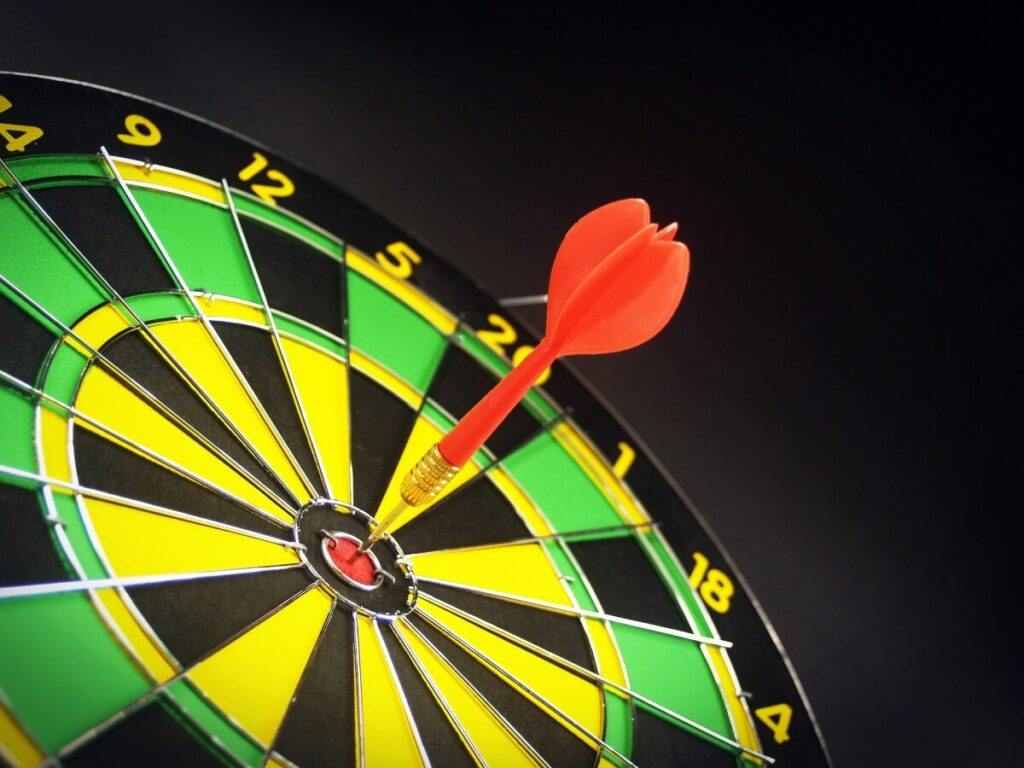Learning French can be intimidating for beginners. New learners tend to get overwhelmed by the number of new vocabulary, expressions, sounds, and everything they have to learn. Their native language might be totally different from French, making matters harder.
There are so many resources out there. You will hear a lot of advice from experts and non-experts alike. Do this, don’t do that. Who do we listen to? What should we do?
New things are scary. Most of us are creatures of habit. A new, unknown language may seem like something impossible to learn. I will never learn it! Been there, done that. That’s why today I came up with some tips for learning French for beginners. Ready?
Are You Really a Beginner?

This may sound like a no brainer, but many people tend to underestimate their level. Some of them studied French in the past but didn’t continue for some reason. When retaking French, they consider themselves beginners.
The problem with this is they don’t challenge themselves. They might accomplish more but out of lack of confidence, they go back instead of moving forward.
It’s okay to review things you have learned, but you might be wasting precious time you could use to advance in your learning process.
The best way to determine your level is by taking a test. It doesn’t have to be a formal test unless you need an official document that is. You can try the following sites:
Why Did You Start?
People study French for several reasons. Some study because of work or school requirements, while others do it for pleasure.
It can be something as simple as: “I want to learn French because I want to understand French movies without reading the subtitles.” Does this sound familiar?
Whatever your motive is, stick with it. Down the road, this will be your motivation to continue. There will be times when you will feel like quitting, but remember why you started in the first place. Remember this is a process, and it takes time. Think of it as a journey.
Establish Goals

When starting a new diet or a new workout routine, they always tell you it’s important to establish goals. Well, guess what? It’s no different when it comes to learning a new language.
Of course, this does not mean you will not learn anything if you don’t have a plan, but it becomes harder.
By establishing goals, you have a sense of direction, and you make yourself accountable for the obtained results. Things make more sense when you know what you’re doing. When you just study with no goals in mind, it’s like walking in the desert with no compass. You can eventually get lost.
Your goals don’t have to be super-elaborate. However, they have to be specific, realistic, and measurable. Start small and then gradually add new goals.
Just learning French is too vague. Instead, consider something like, “I want to learn x number of new words/expressions every week or I want to reach an intermediate level by the end of the year.” Those are better goals and give you a better idea of what you need to do to reach them.
Make a Plan
Goals are good, but they’re not enough. You need to make a plan. How are you going to achieve those goals? What do you need to do?
One of the most critical aspects is time. How much time can you study per week/day? Will you have to get up a little earlier or go to bed a little later than usual? Can you study during your lunch break? What about weekends?
Twenty minutes a day is better than nothing. One day you can study grammar, another day you can learn vocabulary, another day you can watch a video or listen to a podcast, and so on. Vary your techniques as much as possible and build self-discipline. Make learning French a part of your life. Consistency is key.
Do you need a tutor? How much does that cost? When will you take your lessons? How many lessons will you take per week? You need to think about all this, too.
Be Resourceful

Today, we have more resources at our disposal than ever before. You can either study for free or buy books and courses if you prefer so. Money shouldn’t be a problem if you want to learn a language.
For free books, you can visit your local library and borrow some. You can even use their computers if you don’t have Internet at home.
However, if you have Internet but can’t afford to pay for online courses or tutors, you can still study online. There are plenty of materials you can use without paying a single dime.
You may not have enough time and/or money, but that shouldn’t deter you from your goal. Make the most out of your available resources. When there’s a will, there’s a way.
Don’t Focus on Just Speaking
Before saying you speak a language, you have to master it. To master it, you have to be able to read it, write it, understand it, and speak it. Funny but true. I know many people who say they can understand French but can’t speak it, or they claim they can speak it but can’t write it.
Speaking a language is great, but you can’t just ignore the other aspects to it like reading and writing. They don’t have to be boring, but it’s essential to master them if you want to communicate effectively.
Don’t Listen to Others

Let me explain. Those who surround you can either support you or discourage you. They can question your reasons for learning French, its usefulness, your capacity, or something else. They might mean it or not. It could happen with friends or even family.
I remember when I started attending my polyglot group. There was a guy that claimed the only way to learn any language was by immersion. He said you would never learn a language if you never lived in a country where they spoke it. We had a long discussion about it. The bottom line is: There is not a single right way to learn a language.
While others may have the best of intentions when giving you some advice, always take it with a pinch of salt. If what they told you will help you, take it. If not, dump it and move on.
Stop Comparing Yourself to Others
We all learn differently. Some people learn faster than others. I’ve seen it plenty of times.
It can be frustrating to see someone who started at the same time as you at a higher level than yours.
For starters, we don’t know if that person has been studying harder. However, even if you both did the same thing, that doesn’t mean you will get the same results. We have different capacities and limitations.
When we compare ourselves to others, we only hurt ourselves. It does us no good at all. It’s okay to look at others and admire them. However, it becomes a problem when we constantly compare ourselves to them. This only leads to frustration and can even hinder our learning.
Change Your Mindset

Before learning a new language, we may feel scared. We may doubt our learning capacity and never take that step. We are scared to practice what we learned. We don’t even try to speak because we don’t want to make any mistakes. Will they make fun of me? Will they be able to understand me?
Another obstacle is laziness. We want the results, but we don’t want to put in the hard work. Remember Rome wasn’t built in a day.
We may also feel unmotivated at times. We may feel like we’re not learning anything. That’s normal. We all go through that.
Only when we change our mindset will we be able to achieve our goals. Learning a new language can be a long process. It’s not easy but not impossible, either.
Conclusion
We all have to start somewhere. Even the most advanced speakers were beginners one day. They made mistakes. They might have been afraid to speak the language at first just like you.
Learning French is like a journey. When you look back, you will notice how far you have advanced. You never thought you could get that far.
When feeling discouraged, remember why you started in the first place. If you fall, get up again. Surround yourself with positive people who will support you.
What do you think? I hope you found this useful. If you liked it, please don’t forget to share it. Au revoir!
Let's Learn French! Are you ready to take your French to the next level? I'm glad you are! Whether you are a beginner or an intermediate/advanced learner, I can recommend a few options for you. For starters, if you're someone who likes to study on his own, I recommend the following programs: Busuu Mondly Rocket Languages However, if you would like to hire a teacher/tutor, I recommend you try the following: italki Lingoda Preply Feel free to check my site to learn about more resources. Don't forget to check back often to learn more about the French language and culture. Salut!


I did French at school for two years and I was really bad, so even now I consider myself a beginner and I can only remember a few words of the language. I think to learn any language well you actually need to be speaking it all the time and practicing having conversations with natives of the language on a regular basis. Doing this and the repetition it involves will surely make the learning process a lot faster.
How long do you think on average it takes a person to learn a new language if he practices each day for at least an hour?
Hi, Michel,
You’re right. We need to practice on a regular basis. However, I’ve noticed when you retake it, it’s easier than when learning for the very first time.
Answering your question, I would say 12 months is a reasonable time to achieve an advanced level.
Thanks for commenting,
Hi Enrique,
Great article right there. I like it how you raise the question “Are You Really a Beginner?”. Very often we have a time gap in between while learning a new language; and then when we return, we feel like we are at beginner level again. It might lead to a little bit of de motivation “I have been a beginner-level learner for XXX years”. Before I read your article, I did not think of such a simple solution: taking a test. Wow. Things do not have to be always complicated.
I agree with “Change Your Mindset”. Mindset is an important factor in almost everything we do, not only language.
Thank you for the post Enrique.
Tam.
Hi, Tam,
We tend to underestimate our abilities. We may feel insecure when retaking a language, but I’ve found it’s not that hard.
Learning a language has many variables. Not all of us learn at the same time. It’s not all about attitude, but it definitely plays a major role.
Thanks for commenting.